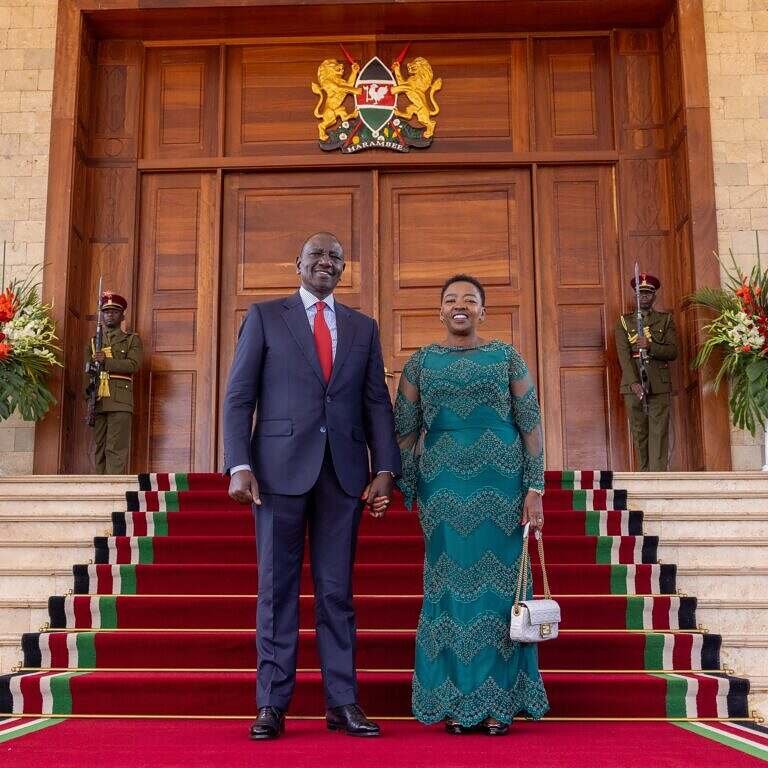
Overview of the African Union Extraordinary Summit
The African Union (AU) Extraordinary Summit provides a strategic platform for member states to discuss crucial issues affecting the continent. This particular summit aims to evaluate progress related to the post-Malabo Comprehensive Africa Agriculture Development Programme (CAADP), a pivotal initiative designed to boost agricultural productivity across African nations. The CAADP outlines a roadmap for enhancing food security and advancing economic growth, recognizing that agriculture serves as a cornerstone of many African economies.
The significance of this summit lies in its focus on establishing collective strategies to address the myriad challenges faced by the agricultural sector. By assembling key stakeholders, including heads of state, policymakers, and agricultural experts, the summit fosters an environment of collaboration. This collaborative approach is essential for developing actionable policies that can effectively tackle issues such as food insecurity, climate change, and inadequate agricultural infrastructure.
Moreover, the summit is expected to yield several outcomes aimed at enhancing agricultural development. These include implementing frameworks for financing agricultural initiatives, sharing best practices among member states, and promoting technology transfer to improve productivity. As African nations grapple with the immediate challenges posed by population growth and environmental deterioration, discussions regarding sustainable agricultural practices will be crucial.
Ultimately, the African Union Extraordinary Summit embodies the commitment of member states to prioritize agriculture as a pathway to achieving broader economic objectives. The concerted effort to strengthen agricultural development signifies a recognition of its pivotal role in driving growth and ensuring food security across the continent. By reinforcing collaboration and sharing insights, the summit serves as an essential step towards sustainable agricultural advancement in Africa.
President Ruto’s Agenda in Uganda
President William Ruto’s official visit to Uganda for the African Union Summit was characterized by a robust agenda aimed at enhancing regional cooperation and promoting agricultural development across the continent. During this one-day visit, President Ruto engaged in a series of planned meetings with fellow African leaders, focusing significantly on developing strategies to bolster agricultural productivity and sustainability.
A pivotal aspect of these discussions revolved around the implementation of innovative agricultural practices. This aligns with President Ruto’s commitment to advocating for sustainability within the agricultural sector, recognized as a key driver for economic growth in many African nations. Collaborative efforts such as knowledge sharing and adopting best practices were on the table, with the intent to enhance food security and address challenges such as climate change, which poses significant risks to agricultural viability.
In addition to meetings with leaders from various nations, President Ruto was expected to discuss potential bilateral agreements that could lead to closer trade relations and economic partnerships. These agreements are especially paramount as they may provide frameworks for cooperation in critical areas such as technology transfer, investment in agricultural infrastructures, and joint research initiatives aimed at improving crop yields and livestock production.
President Ruto’s presence at the summit not only signifies his leadership role but also underscores Kenya’s dedication to fostering a collaborative approach toward regional agricultural challenges. His proactive stance in proposing actionable strategies underscores the importance of integrating sustainable practices within national policies, reinforcing the belief that collective efforts can yield substantial improvements in agricultural outcomes across Africa.
Key Issues Facing Agriculture in Africa
Agriculture remains a cornerstone of Africa’s economy, employing a majority of the continent’s workforce and contributing significantly to GDP. However, the sector faces numerous challenges that threaten its growth and sustainability. One of the most pressing issues is climate change, which has a severe impact on agricultural productivity. Variability in weather patterns, increased frequency of droughts, and flooding disrupt farming activities, directly affecting food production and security. If not addressed, these climatic adversities could exacerbate existing issues of hunger and malnutrition across the continent.
Food security is another critical concern for African nations. Despite the abundance of agricultural land, many countries struggle to feed their populations due to inadequate infrastructure, poor governance, and limited access to markets. This situation is further aggravated by rising global food prices and dependence on food imports. To combat these issues, the post-Malabo Comprehensive Africa Agriculture Development Programme (CAADP) was established. This initiative aims to promote investment in agriculture, enhance resilience to climate change, and improve food security through a set of clear and actionable goals.
Infrastructure deficits also pose a significant barrier to agricultural development. Many regions still lack the necessary irrigation systems, transportation networks, and storage facilities to support efficient agricultural practices. Without these crucial infrastructures, farmers are unable to access vital resources or markets, which impedes their ability to maximize yield and profitability. Collaborative efforts at summits like the African Union Summit provide a platform for member states to share best practices, forge partnerships, and develop collective policies aimed at overcoming these obstacles. Through innovative solutions and strategic investments, Africa can strive towards a more resilient and productive agricultural sector.
Implications of the Summit and Conclusion
The recent African Union Summit, which was prominently attended by President Ruto of Kenya, holds significant implications for Africa’s agricultural policies and initiatives. This summit provides a critical platform for member states to address pressing agricultural challenges that hinder food security and sustainable development. The discussions are expected to yield resolutions aimed at enhancing agricultural productivity, fostering innovation, and promoting intra-African trade in agricultural goods. These outcomes not only reflect the commitment of African nations to improve their agricultural sectors but also underscore the urgency of collaborative efforts to combat climate change and its adverse effects on food systems.
Moreover, President Ruto’s presence at the summit symbolizes a strengthening of Kenya-Uganda relations, highlighting the importance of harmonious cooperation between neighboring countries. Enhanced bilateral ties can lead to the development of joint agricultural projects, share best practices, and foster trade agreements that benefit both nations. This relationship stands to encourage other countries within the region to pursue similar collaborative frameworks, ultimately promoting regional stability and economic growth. The potential for knowledge exchange and resource-sharing between Kenya and Uganda could catalyze a more robust agricultural landscape and stimulate food production, benefitting the entire East African region.
Looking to the future, the summit outcomes may pave the way for significant advances in agricultural development across Africa. By fostering linkages among African countries, the potential exists for a more resilient agricultural sector capable of meeting the continent’s growing food demands. Improved collaboration could lead to technological advancements, investment in infrastructure, and the establishment of policies that prioritize sustainable farming practices. Therefore, this summit and President Ruto’s engagement not only set the stage for immediate actions but also inspire long-term strategies aimed at realizing a stable and prosperous agricultural future for Africa.





